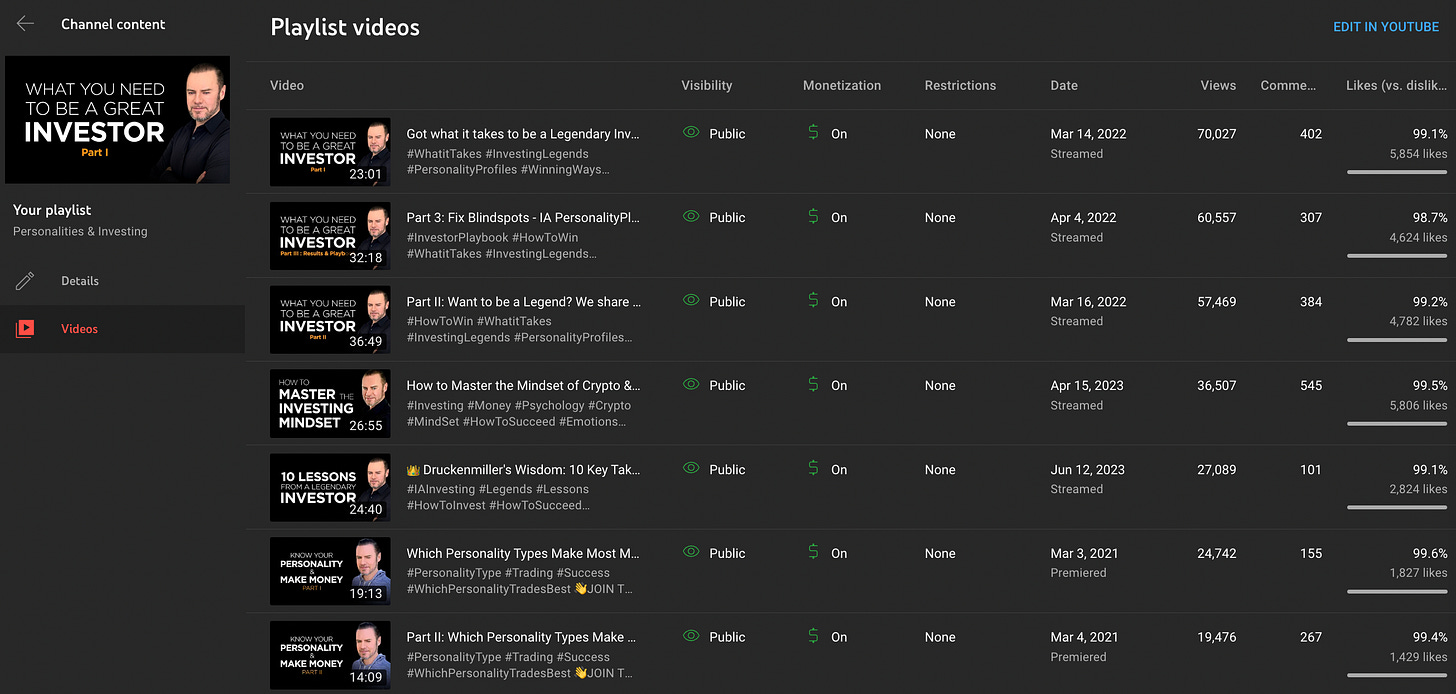Dark Smarts: IQ's Link to Toxicity
Exploring the Intriguing Correlation between IQ and Toxicity
Dear Readers,
Today, I dive into a compelling facet of psychological research that examines the interplay between intelligence quotient (IQ) and social behavior, specifically toxicity. Conventional wisdom might suggest that higher intelligence correlates with more refined behavior, yet the data tells a nuanced story.
I’ve noticed a pattern since I went public with YouTube in 2021. I wanted to prove it with research.
Many recent studies reveal a negative correlation between IQ and toxicity, subtly hinting that individuals with higher IQs may exhibit less toxic behavior than their lower-IQ counterparts. However, exceptions are plentiful, and the relationship is not 100% deterministic.
One study in "Personality and Individual Differences" quantified this correlation at -0.15, suggesting a marginal decrease in toxicity with each incremental point increase in IQ.
Furthermore, "Psychological Science" reports a -0.20 correlation between IQ and aggression, more pronounced in men than women. This differentiation opens additional layers of complexity regarding gender dynamics in social behavior and intelligence.
But let's be clear: correlation is not causation. A higher IQ doesn't immunize one against toxicity, nor does a lower IQ destine one for it. Factors such as emotional regulation and background may also play critical roles, shaping behaviors in ways that transcend raw intelligence scores.
Why might some lower-IQ individuals exhibit toxic behaviors?
There are a few reasons for Toxicity:
Challenges in understanding and managing emotions are a potential factor, as are environmental influences such as exposure to violence or trauma.
Experiencing financial loss, failing to generate profits, or retaining underperforming assets may also provoke adverse and toxic responses.
Moreover, the role of dark personality traits in career advancement provides a fascinating angle to consider.
Takes me down another rabbit hole, can dark traits masked by political skill propel individuals up the organizational ladder? YES THEY SURE CAN!
Why I care so much about this?
Exploring the intersection of cognitive ability, personality, and behavior in the context of both personal and professional realms. It is the secret to winning that few ever take the time to study!
I have a whole playlist on this important area - if you want to invest and be successful, it is important to ramp up on this series.
For the record, we here at InvestAnswers will be launching a new FREE INVESTOR PROFILER on our website in Jan 2024 - the mission is to help people not only identify their strengths but also uncover their weaknesses. My mission is to help as many as I can while I am still around.
Exploring the intricate patterns of this psychological mosaic, in search of understanding the fine interplay between thought and behavior, has always captivated me. This exploration has been immensely beneficial in my early years of investing, ie finding my own strengths and being aware of my weaknesses.
Stay curious,
James at IA
SOURCES:
Templer (2018) and based on Socioanalytic Theory (Hogan & Shelton, 1998)
Socioanalytic Theory (Hogan & Shelton, 1998)
Templer (2018)
PS Leads (Tett, Simonet, Walser & Brown, 2013)
Job Demands (Gansen-Ammann, Meurs, Wihler & Blickle, 2019)







